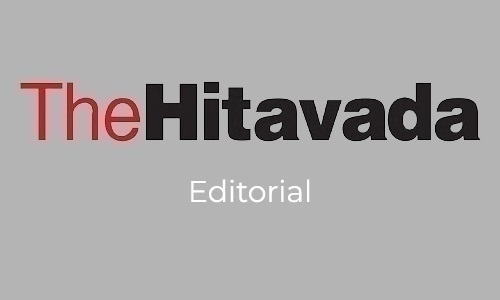FIGHT SCOURGE
| Date :24-Aug-2023 |

THE United Nations (UN) paying tributes to terror victims globally on the International Day of Remembrance of and Tribute to the Victims of Terrorism, is a human gesture. But, for the sake of humanity, as far as terrorism is concerned, the global comity of nations needs to do more than just pay tributes. The UN needs to evolve its response to more actionable level.
Given the stand taken by some of the UN Security Council members -- or P5, as they are referred to -- on the scourge of terrorism, it raises suspicions among the nations who are not part of the Council. For, nations like China have been exercising their veto power to scuttle the proposals by nations like India bearing the brunt of global terrorism. By blocking the proposals for designating certain individuals as global terrorists, China has been overtly extending support to Pakistan, which has earned the dubious distinction of being the hub of global terrorism. When a member of the P5 acts in such an irresponsible way, the exercises like the UN paying tributes to victims of global terror look like mere tokenism.
Time has come for the UN to look at the issue of global terrorism with a more serious approach. This serious approach may involve forming International Anti-Terrorism Alliance on the lines of International Solar Alliance. Such an alliance will help in shaping the united response of the nations to the threat to global peace. It may have a wide charter of duties ranging from universal security co-operation to better co-ordinated tracking of terror financing to smoothening extradition procedures to joint action by nations against terror havens and networks.
Simultaneously, the UN will have to take up the long-pending overhaul of the United Nations Security Council. For, the present composition of the Council allows only five nations to wield power. Over the years, there has been criticism from various smaller nations that the UNSC had become a closed group of nations engaged in the ‘arms trade’. On occasions, there have been allegations also that the
perceived superpowers were actively arming insurgents in some or the other nation to give a fillip to demand of arms supplied by the defence industrial complex. Time has come for the UN to recognise the rising clout and influence of nations like India, Brazil, Japan, Germany, South Africa. Unfortunately, there has been delay in UNSC reforms. Some time ago, India had rightly criticised the delay as ‘another wasted opportunity’.
Unless the UNSC is reformed in a fashion that it becomes more inclusive, and unless concrete steps are taken to form International Anti-Terrorism Alliance (merely having an Office of Counter-Terrorism will not suffice), the exercise of offering tributes to victims of global terror will not be more meaningful. Such tributes will be reduced to mere lip-service in absence of such concrete steps. Here, the observation of a 26/11 Mumbai terror attack survivor Mr. Karambir Singh Kang, “The United Nations needs to pull its weight on some of these matters which globally affect all of us”, become more significant. It is for the UN to respond to such appeals of terror attack survivors, with some solid measures to fight the scourge of international terrorism.
If the borderless terrorism is to be fought, it will have to be done by creating a borderless anti-terrorism alliance where countries come together to act beyond selfish considerations of arms business or shielding friends. The humanity suffering from terrorism expects the UN to take a resolute stand, instead of merely issuing statements on commemorative occasions. Without commitment visible in action, no words can create hope for humanity as far as building peace is concerned.